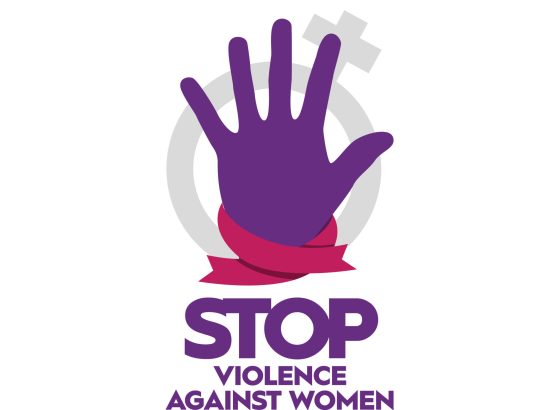Building Respectful Relationships – Jennifer Oaten

Imagine a society where one in three women you know has faced physical violence, and one in five has experienced sexual violence from the age of 15. These staggering statistics highlight a critical issue in Australia that demands our immediate attention. Violence against women remains a significant problem, with domestic violence often being perpetrated by partners or family members. The impact extends beyond individuals, affecting families, communities, and society as a whole.
Growing up, I was fortunate to witness my parents’ mutual respect and understanding. They were my first and most influential role models, consistently demonstrating that respect is not only the foundation of healthy relationships but also non-negotiable. Recent troubling events highlight the importance of schools, organisations, and communities fostering environments where respect is a fundamental expectation for every woman.
What Contributes to this Situation in Australia?
There are several factors contributing to the violence epidemic in Australia, but five key areas stand out:
Inequality: Persistent attitudes and beliefs about gender roles that justify, excuse, or ignore poor treatment of or violence against women. These reinforce the notion that males have the right to exert power, dominance, and control over women.
Media Representation: The portrayal of violence against women in the media can influence societal attitudes and behaviours, sometimes normalising or trivialising such violence. This can promote harmful male behaviour and lead to women accepting violence as normal.
Financial Challenges: High levels of unemployment and financial stress can increase tensions within families, leading to a higher risk of domestic violence. Financial dependence on a partner and a lack of confidence in understanding and navigating finances can make it difficult for women to leave disrespectful relationships.
Mental Health: Untreated mental health issues and substance abuse can contribute to erratic or violent behaviour. A history of trauma can also exacerbate violent behaviour towards women.
Lack of Support: Limited resources in areas such as counselling, emergency accommodation, free legal support, and other services can prevent women from resolving issues before they escalate to violence.
Given the increase in violence and these influencing factors, a key way forward is to focus on developing respectful relationships in our society, starting with education at school for both males and females.

What is a Respectful Relationship?
The Keeping Safe: Child Protection Curriculum, implemented in many schools, defines respectful relationships as those characterised by equality, trust, mutual respect, and consideration of everyone’s rights and needs. In a respectful relationship, partners value each other’s opinions, feelings, and boundaries. They communicate openly and honestly, resolve conflicts, and support each other’s goals and aspirations. Respect is at the core of every interaction, ensuring that both partners feel safe, valued, and empowered. We need every young person, not just young women, to graduate knowing and believing these principles. Emphasising the importance of building respectful relationships within school curricula is essential.:
What Can Schools Do?
While much of the government’s focus regarding violence against women is on legal reform, punishments, and improved support services, schools play a pivotal role in shaping attitudes and behaviours and fostering an environment of respect and equality. Schools are microcosms of society where children learn interpersonal skills, form values, and shape their understanding of the world. Therefore, it is imperative that schools actively address issues related to gender-based violence and work towards creating a culture of respect and equality. Building respectful relationships within educational settings is a key strategy for long-term societal change.
Here are specific actions educators can take:
- Promoting Gender Equality: Schools should actively promote gender equality in all aspects of education, including curriculum, extracurricular activities, and leadership opportunities. Encouraging girls to pursue traditionally male-dominated fields and providing platforms to showcase their talents can help break down stereotypes and empower them to reach their full potential.
- Building Respectful Relationships: Schools can challenge harmful attitudes and behaviours from an early age by fostering open discussions about respect and consent. We prioritise educating our students on personal safety and respectful interactions through the Keeping Safe: Child Protection Curriculum. This program equips students with the knowledge and skills to understand and navigate the complexities of relationships.
- Empowering Student Voice: We encourage our students to find their voices and assert their rights to be treated with respect. Empowering students to be active bystanders and intervene when they witness harassment or violence can help create a culture of accountability and solidarity. By creating a safe and supportive environment where victims feel empowered to speak up and seek help, schools send a strong message that violence against women will not be tolerated.
- Evaluating Portrayal of Relationships: Young people need to recognise how media and social media can manipulate perceptions of relationships, often promoting unacceptable and unrealistic behaviour. This includes developing critical thinking about the intent behind social media messages and the credibility of sources, and discerning between healthy, positive content and harmful or misleading information.
- Developing Independence: Financial knowledge empowers young people to build a secure future that is not reliant on potentially harmful relationships. Independence, career paths, and comprehensive financial education covering budgeting, saving, and investing can give them the confidence to walk away from disrespectful relationships.
- Forming Allies: Young men and women need to be allies in promoting gender equality and respect, fostering a culture where violence and discrimination are not tolerated. Both male and female role models who display respectful relationships, call out poor behaviour, and provide mentorship can lead to positive relationships for all in our community.
- Providing Support: Confidential support services for students who have experienced violence or abuse, including counselling, referrals to external agencies, and safe spaces, are crucial. Ensuring that victims receive the support they need to heal and recover from trauma is essential.
- Community Collaboration: Efforts to educate and empower students are significantly enhanced when supported by community action and parental engagement. By fostering partnerships and engaging in community outreach initiatives, schools can create a united front against gender-based violence and promote a culture of respect and equality beyond the school gates.
A Unified Call to Action
Building a culture of respect and preventing domestic violence requires a concerted effort from all sectors of society. Schools, parents, and community members must work together to ensure that our young people grow up in an environment that teaches and exemplifies respect. By committing to building a safer, more inclusive society for all, starting with our own families, we can create a culture where every woman and girl can live without fear and fulfil her potential without limitations. Our daughters deserve nothing less.
Together, we can help ensure a safer, more respectful society for future generations. Let us work towards building a culture where respect is the norm and violence against women has no place. Building respectful relationships is not just a goal but a necessity for a better future.


Embracing the Spirit of Giving: Winter Appeal 2024
Our 2024 Winter Appeal showcased our community’s generosity, supporting local outreach agencies through donations and service.

Cassie’s Story: Journalist to Company Director
Cassie Silver (Class of 2006) shares her story from journalist to Company Director, highlighting the importance of resilience and authenticity.

From Santa Maria to Global Tech: Elisha’s Inspiring Journey
Discover Elisha Bethe’s (2017) inspiring journey from Santa Maria College to a successful career in technology and law.
- Featured
Author: Santa Maria College
Santa Maria College is a vibrant girls school with a growing local presence and reputation. Our Mission is to educate young Mercy women who act with courage and compassion to enrich our world. Santa Maria College is located in Attadale in Western Australia, 16 km from the Perth CBD. We offer a Catholic education for girls in Years 5 – 12 and have 1300 students, including 152 boarders.







